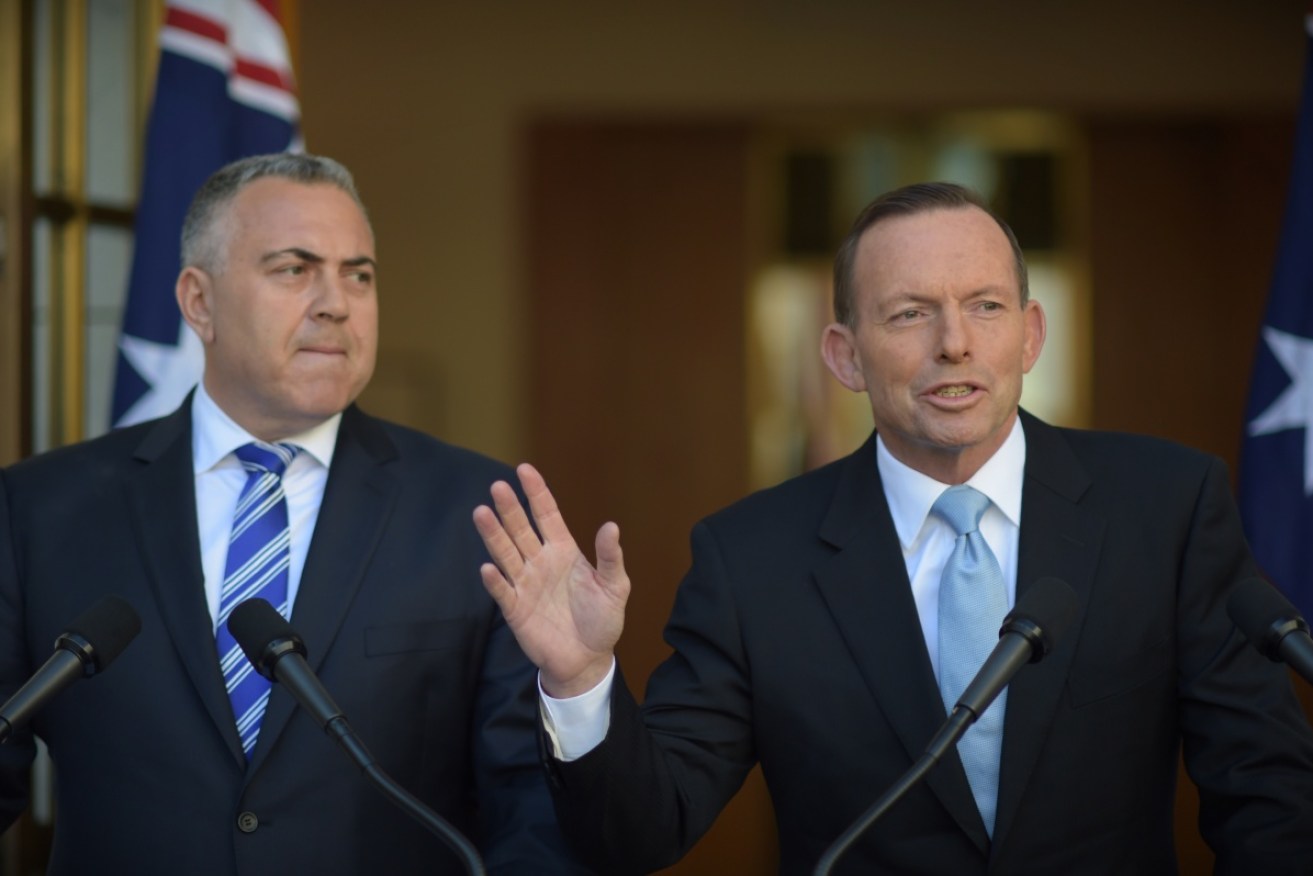Labor decides to keep $4 billion tax loophole – and receives a $100,000 donation from the key beneficiaries


Joe Hockey and Tony Abbott initially opposed Labor's tax lurk, but changed their minds in government. Photo: AAP
In May 2013, the Labor government announced an end to one of the more egregious and obvious tax lurks that benefitted the few to the detriment of the many.
The lurk was estimated to be costing the budget $1.8 billion over four years.
The Abbott/Hockey Opposition unsurprisingly opposed that policy – the Abbott/Hockey Opposition opposed nearly everything.
The industry body that primarily exists to provide the lurk donated a quarter of a million dollars to the Opposition’s election fighting fund. The coalition won the subsequent election and the lurk was preserved.
In 2016, Labor leader Bill Shorten abandoned the reform. And Labor received a $100,000 donation from the industry body.
In a particularly bad look, Labor failed to properly disclose that donation. Only now has it come to light, the Guardian reporting that it took Australian Electoral Commission probing to uncover it.
A Labor spokeswoman reportedly blamed the failing on a “clerical error”.
The lurk, meanwhile, has continued to blossom and grow. It’s now estimated to cost the budget $4 billion over the next four years.
That’s what happens with bad policies that are allowed to persist – they spread and grow as more and more people seek to exploit the financial advantage.
Think cash refunds for franking credits for people who don’t pay tax and the combination of the capital gains tax discount and negative gearing – areas Labor is trying to rein in.
But not what is officially called “application of statutory formula to value car benefits”, better known as novated leasing. The latest tax expenditure
I’ve long regarded political parties’ support for the novated leasing industry as a quick test of their integrity, or lack thereof.
The policy allows some employees to buy and run a motor vehicle more cheaply than the general population – $4 billion over four years more cheaply.
It is iniquitous. It is poor tax and economic policy. It distorts people’s spending behaviour.
But it seems the National Automotive Leasing and Salary Packaging Association is an amazingly effective lobby, as well as a generous political donor.
In May, 2016, Mr Shorten wrote to NALSPA, promising to maintain the lurk that drives NALSPA members’ considerable income.
“Labor values the important economic contribution of your members and the many people in charities, hospitals, the community sector and corporate Australia who use your services. We look forward to an ongoing dialogue and further building our relation,” wrote Mr Shorten.
The allusion to charity, hospital and community sector workers is both a fig leaf for the ordinary corporate novated leasing and salary packaging as well as a pointer to another poor policy.
Hospital employees, for example, are entitled to salary packaging tax breaks up to and including $5000 for “entertainment”, as well as cheaper new vehicles.
Instead of paying the employees the money and letting them decide how to best use it, the budget cops the expense of convoluted accounting and the extra cost of NALSPA members’ profits and overheads.
Indeed, the whole salary packaging industry represents policy failure. But that’s a story for another day.







